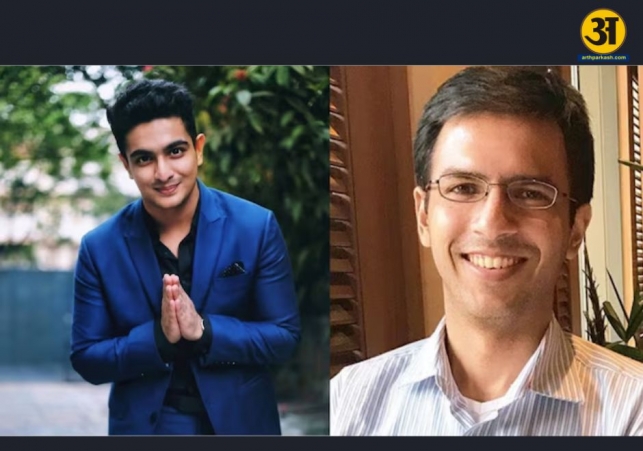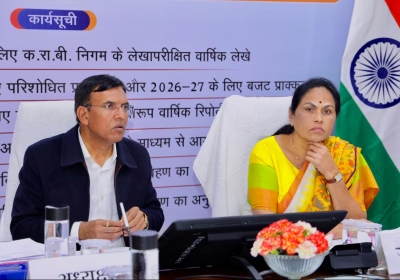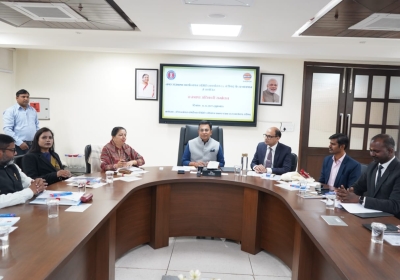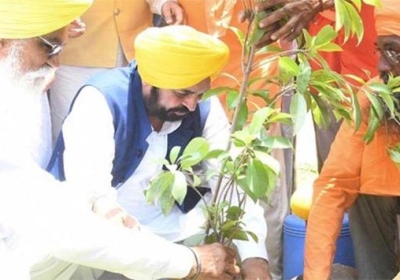
Abhinav Chandrachud in SC: "I'm disgusted, but..."
"I'm disgusted, but…": Abhinav Chandrachud's argument in Supreme Court for Ranveer Allahbadia
In a controversial case surrounding content creator Ranveer Allahbadia, widely known as ‘BeerBiceps,’ the Supreme Court has granted him protection from arrest while also expressing strong disapproval of his comments made during an episode of the YouTube show India’s Got Latent. Allahbadia, who found himself embroiled in a massive row due to his statements about parents and sex, has faced multiple FIRs across various states. His remarks, which many found perverted and unacceptable, were discussed in the top court on Tuesday, where the judges reprimanded him harshly.
The controversial comments and legal repercussions
The controversy began when Ranveer Allahbadia appeared on India’s Got Latent, hosted by comedian Samay Raina, where he made comments about the relationship between parents and sex. His remarks, which many perceived as inappropriate, resulted in FIRs being filed against him in several states. The Supreme Court, while granting Allahbadia protection from arrest, wasted no time in expressing its distaste for his words.
Justice Surya Kant, who was part of the bench, was particularly vocal in his criticism, labeling Allahbadia’s comments as "perverted" and saying they would make daughters, sisters, parents, and society feel ashamed. The court described his language as indicative of a "dirty mind" that had been “vomited” onto a public platform, emphasizing the need for responsibility, especially when public figures engage with millions of people on platforms like YouTube. The comments drew backlash from a wide section of society, with many calling for action against Allahbadia for promoting such harmful views.
Abhinav Chandrachud, a senior advocate representing Ranveer Allahbadia, presented the defense in the Supreme Court. Despite acknowledging the offensive nature of his client’s statements, Chandrachud argued that the remarks, though distasteful, did not necessarily rise to the level of criminal conduct. His defense centered on the idea that profanity alone should not be considered a criminal offense. Chandrachud, as an officer of the court, admitted to being “disgusted” by Allahbadia’s words but suggested that there is a distinction between offensive speech and behavior that constitutes a criminal act.
The lawyer’s position was that the court should focus on whether the language used by Allahbadia could be classified as obscenity under the law. In response to questions from the bench, Chandrachud referred to previous legal precedents, including the Supreme Court ruling in the Apoorva Arora case of 2024. In that case, the court quashed an FIR against creators of a web series, noting that artistic expression, even when containing profanity or suggestive content, does not automatically equate to obscenity unless it stirs lustful or sexual thoughts in a reasonable person.
The discussion in the Supreme Court drew on key precedents in Indian law regarding the definition of obscenity. One significant case referred to by Chandrachud was the Apoorva Arora case, in which the court quashed an FIR filed against the creators of the popular web series College Romance. The court ruled in favor of artistic expression and freedom of speech, setting an important precedent for digital content creators. Chandrachud used this case to argue that profanity, in the absence of an incitement to illicit behavior or thoughts, should not be treated as a criminal act.
The Supreme Court also emphasized that content creators must be cautious about the potential consequences of their words, especially when they cater to a large and diverse audience. Allahbadia’s comments were seen as problematic not just because of the content itself but because of their potential to incite public outrage and harm societal values. This led the court to ponder whether such remarks, made in the pursuit of cheap publicity, could set a dangerous precedent, encouraging others to make similar comments for attention.
ALSO READ: Yamuna cleaning drive kicks off just days before BJP forms Government in Delhi
The Court’s conditions and protection from arrest
While granting Allahbadia protection from arrest, the Supreme Court imposed several conditions. It directed that no further FIRs could be filed against him regarding his comments on India’s Got Latent, emphasizing that multiple FIRs had already been registered in different states, creating a complex legal situation. The court also issued an order for Allahbadia to refrain from airing any future episodes of the controversial show until further notice.
As part of the protection, Allahbadia was instructed to deposit his passport at the Thane police station and seek prior permission from the court before leaving the country. The court also made it clear that he must cooperate with ongoing investigations related to the FIRs filed in Maharashtra and Assam. The top court’s decision to protect Allahbadia from arrest, despite the harsh criticism of his remarks, highlights the nuanced approach it took in balancing freedom of speech with the need to maintain social decorum.
This case has wider implications for content creators on digital platforms, especially those who operate in spaces where they engage in discussions of sensitive topics. While the freedom of expression is a constitutional right, the case underscores the need for greater responsibility when addressing issues that can potentially offend large sections of society. For digital influencers and creators, this case serves as a reminder of the power their words can wield and the legal consequences that may follow if they cross the line between freedom of speech and inciting public harm.
The Supreme Court’s decision has also brought to light the complexities of regulating online content in India, where platforms like YouTube offer a space for creators to express themselves freely but also create challenges for legal authorities in determining where to draw the line. The case demonstrates the delicate balance between encouraging creative freedom and protecting societal values from harmful content.
The controversy surrounding Ranveer Allahbadia’s comments also raises questions about the responsibility of content creators in shaping public opinion. Online platforms have become powerful tools for influencing societal norms, and influencers like Allahbadia have a significant reach. This power, however, comes with the obligation to be mindful of the impact that words can have on vulnerable sections of the audience, especially minors and young adults who may look up to these figures.
In this context, the case could be seen as a pivotal moment in the ongoing debate about the role of social media influencers in society. While creators have the right to express their opinions, they must be prepared to face scrutiny if their words are deemed harmful to public sensibilities. The judgment by the Supreme Court in this case will likely set a precedent for future cases involving content creators, providing guidance on how to navigate the complex intersection of freedom of expression, obscenity, and public morality.
Ranveer Allahbadia’s controversial comments on India’s Got Latent have not only sparked widespread outrage but also triggered a legal battle that may set important precedents for future content creators. While the Supreme Court granted him protection from arrest, it made it clear that such offensive remarks are unacceptable, particularly when they can hurt societal values and norms. This case highlights the evolving nature of free speech in the digital age, where content creators must tread carefully, balancing their right to self-expression with the responsibility to avoid causing harm to society. The final outcome of this case may have far-reaching implications for how online content is regulated in India and for the larger question of how to maintain a balance between freedom of speech and societal morality.





